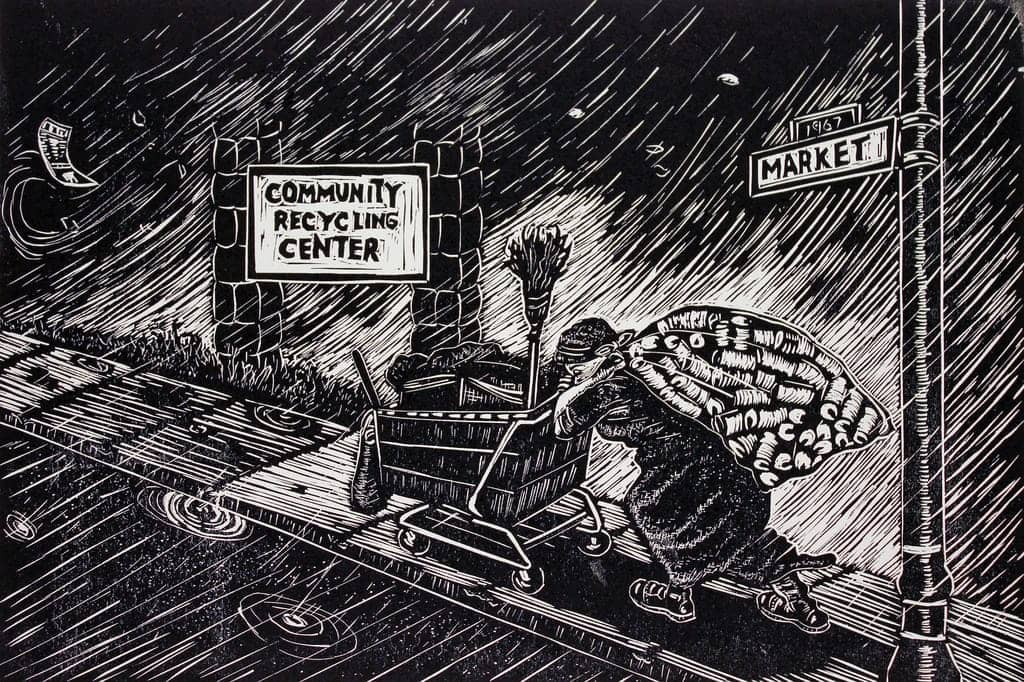by Lisa Marie Alatorre, Coalition on Homelessness
San Francisco – A tragic impact of increased gentrification and the rapid development of neighborhoods like the Mission is the almost complete elimination of neighborhood-based recycling centers in the most populated neighborhoods in the city. In the past year, five recycling centers have been evicted and shut-down.

“Recycling is a great service to our cities and in service to our city’s green aspirations,” says Ed Dunn of the Market Street Community Recyclers Center. “San Francisco cannot reach our collective goal of zero waste by 2020 with curbside recycling and reverse vending machines alone! Recycling, and keeping it accessible to all, is one pillar in the movement to preserve the ecosystem for future generations.”
This eviction comes as yet another way to push homeless and poor people from San Francisco’s neighborhoods and relegate them to industrial areas, or out of the city entirely.
This problem is unfortunately not unique to San Francisco and has been taken up in the California legislature a number of times. The well known California Bottle Bill has been recently challenged by conservative leaders in San Francisco requesting city-wide exemptions which would consolidate and privatize recycling, effectively eliminating mass access to this necessary activity.
“In addition to helping our planet, recycling creates an economic lifeline for some of our poorest and most vulnerable San Franciscans,” says Assemblymember Tom Ammiano. “Eliminating community-based recycling further perpetuates poverty in our city and has severe negative impacts on small businesses that rely on recycling centers for their customers to get their beverage redemption. Having private recycling centers in hard-to-access areas of the city is counterproductive to the intention of the Bottle Bill and reduces access to economic opportunities for poor, elderly, disabled and struggling San Franciscans.”
“Recycling is a great service to our cities and in service to our city’s green aspirations,” says Ed Dunn of the Market Street Community Recyclers Center.
Recyclers from all communities, environmental activists and economic justice fighters held a community townhall on March 24 sponsored by Assemblymember Tom Ammiano to provide a much needed opportunity to learn more about this issue as it is currently impacting ALL of our neighborhoods and residents.
“In addition to helping our planet, recycling creates an economic lifeline for some of our poorest and most vulnerable San Franciscans,” says Assemblymember Tom Ammiano.
A new Brookings Institute study reports that San Francisco has the second greatest inequality gap in the country, and Oakland came in at No. 7. San Francisco also has the distinction of the having the most rapidly growing income gap.
The Coalition on Homelessness San Francisco, led by homeless people themselves, strives to faithfully represent the poorest San Franciscans and to collectively overcome destitution with dignity. Contact the Coalition at 468 Turk St., San Francisco CA 94109, 415- 346-3740, jfriedenbach@cohsf.org, www.cohsf.org. Bay View staff contributed to this story.





